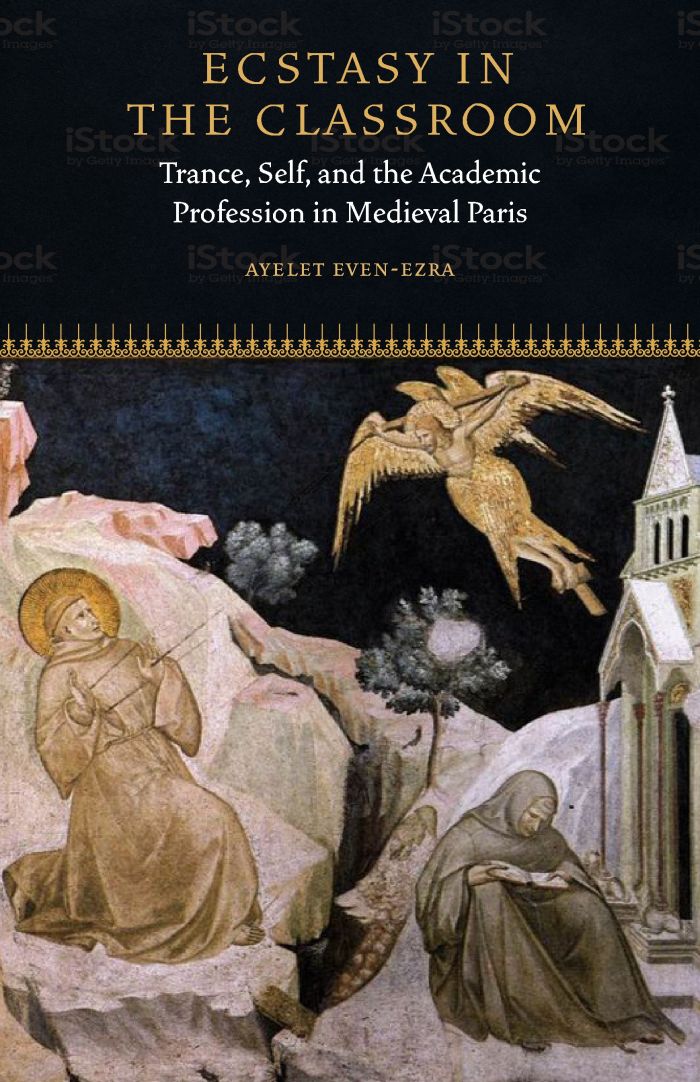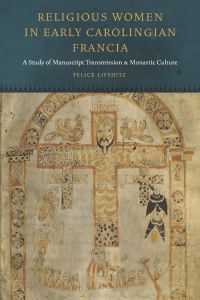Ecstasy in the Classroom
Trance, Self, and the Academic Profession in Medieval Paris

This book can be opened with

This work is an important contribution to recent research on the University of Paris in its early decades....[It] will appeal to a wide audience, including those working on scholastic philosophy and theology and those interested in rapture, vision, and mystical experience.—William J. Courtenay, Church History
The intellectual pitch of Ecstasy in the Classroom will be evident from its title. Even-Ezra's fascinating and deeply learned book studies the intricate means by which the rationalism of scholastic inquiry comes to terms with ecstatic, inspired knowledge. The author's point of departure: scholastic philosophy's grappling with the phenomenon of St. Paul's transport into the 'third heaven' as the basis of his theology. The author also probes the psychology and ethics of inspired knowledge, and presents the mediating experiences of trance, ecstasy, prophetic vision as means not only of insight, but of 'transformation of the self.' Even-Ezra's work extends the focal point of mystical knowledge from individuals in isolation to the classroom.—C. Stephen Jaeger, University of Illinois
Even-Ezra is an excellent storyteller and her book is eminently readable. It is essential reading for those interested in medieval rapture, cognition, faith, scholastic debate, and the history of the universities.—Speculum
With light and sure feet Even-Ezra dances through complex scholastic debates concerning rapture, prophecy, faith, wisdom, and beatific vision; if those were the only steps she braved the book would be worth its purchase price. But Even-Ezra dares trickier choreography still, as she guides her reader through discussions on how these debates are motivated by questions concerning cognition of God, what they suggest about the role of the theologian in the church and in society, and how knowing God (whether rationally or ecstatically) transforms the knower. What results is a delight to behold, a feat in medieval studies. Readers curious about the foundations of scholastic theology as well as the practice of academic theology today will find Ecstasy in the Classroom worth pursuing.—Reading Religion
As its title suggests, this book does three things: (1) It describes the discourse about Paul’s trance and other modes of cognizing God through key questions raised by early thirteenth-century theologians; (2) It discusses the perceptions of the self implied by this discourse; (3) It suggests these questions resonate concerns of theologians regarding the nature of their academic profession. Each chapter, therefore, has accordingly three titles.
Introduction / 1
1 Why was Paul ignorant of his own state, and how do various
modes of cognizing God differ? / 23
The experiencing self and the observing self
Theology among other modes of cognizing God
2 How could Paul remember his rapture? / 59
Memory and the continuity of the self
Theology between experience and words
3 Can a soul see God or itself without intermediaries? / 81
The self as distinct from its habits and actions
Theology between experience and observation
4 Does true faith rely on anything external? / 111
The self as an ultimate source of authority
Theology between internal and external authority
5 What happens to old modes of cognition when new ones are
introduced during trance and other transitions? / 135
The self and its ability to manipulate parts of it during transitions
Theology between reasoned knowledge and simple faith
6 Can knowledge qua knowledge be a virtue? / 158
The self in society
Theology between theory and practice
Summary and Epilogue / 189
Appendix / 199
Acknowledgments / 205
Notes / 207
Bibliography / 265
Index / 291


